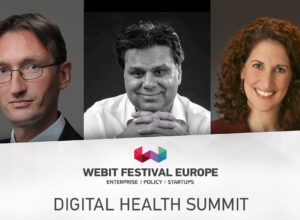Tag: Medicine
New treatment methods puts curing breast cancer within our reach
Cancer is among the leading causes of morbidity and mortality with approximately 9 million annual deaths. About 70% of this lethal cases occur in low and middle income countries, while 25% of them are causing infections like hepatitis and human papilloma.
Last year Microsoft has vowed to solve the worldwide cancer problem within a decade. The tech giant plans to use ground-breaking computer science to break the code of tumor cells and reprogram them back into a healthy state.
But Microsoft’s army of biologists, software experts and engineers might have a tough competition for achieving this important goal because of several treatment breakthroughs in recent weeks.
On March 10 the European Cancer Organisation (ECCO) announced that approximately a quarter of women with HER2 positive breast cancer, who were treated with a combination of the targeted drugs lapatinib and trastuzumab before surgery and chemotherapy, saw their tumors shrink significantly or even disappear.
"This has ground-breaking potential because it allows us to identify a group of patients who, within 11 days, have had their tumours disappear with anti-HER2 therapy alone and who potentially may not require subsequent chemotherapy. This offers the opportunity to tailor treatment for each individual woman”, said Professor Nigel Bundred at the European Breast Cancer Conference just few days ago.Meanwhile, a new study by experts at the Wellcome Trust Sanger Institute suggests that new biological therapies can help fight breast cancers caused by rare, inherited genetic errors, like the one famous actress Angelina Jolie have. A newly discovered combination of targeted drugs could be effective in one in five breast cancer cases. One of the therapies is already used in the United Kingdom to treat advanced ovarian cancer cases, but it is still not approved as a breast cancer drug. The british scientists have found that a significant proportion of the genetic make-up of breast cancers have close similarities in their mutational signatures. This led them to the conclusion that they might be treatable with biological therapies. This along with other methods like regular exercising, eating a good diet, avoiding cigarettes, limiting alcohol usage and maintaining a healthy weight can lower women’s lifetime risks of breast cancer. To keep up with the hottest trends in the world of digital health Webit.Festival is the right place for you. During the Health & Wellbeing Summit, you can listen to top level speakers such as the Consultant surgeon & Co-founder of Virtual Medics and Medical Realities prof. Shafi Ahmed, the Deputy Chief Health Officer at IBM Lisa Latts and the Founder and CEO of Biovotion Dr. Andreas Caduff. Here you can see a full list of the confirmed speakers at Webit.Festival, while here you can get all the information you need about the tickets for the event.
Learn about the latest advances in HealthTech at Webit.Festival
Despite the fact that over the last century medicine noted significant achievements that led to the increase in life expectancy of more than 20 years, health care remains one of the most inefficient and unreformed sectors.
Today, connectivity and information are the hottest words in the world of health technology. The new trends in this extremely important field are improving communication, but still pose some concerns for safety of personal information.
Experts predict that this year we will see a big jump in data integration in healthcare. This can lead to simplified processes, health monitoring with mobile apps and will have an overall positive impact on patient engagement.
The current medical data systems were designed before the Big Data revolution and need to change for better connection between the various sources of information. All the upcoming transformations will impact the delivery of care that benefits both the patient and the provider.
Patients are increasingly accessing healthcare services from home as national health systems and vendors begin to get on board. By the end of 2017 nearly 90% of all large employers in the USA are expected to offer telehealth benefits, up from 75% in 2016 and only 30% in 2015. This dramatic increase is an opportunity for many employees to utilize innovative telehealth services for their families.
At this year’s Webit.Festival you can listen to some of the top experts in those innovative fields of digital industry. During the Health & Wellbeing Summit they will share their thoughts on the development of VR in medicine, using cognitive technologies to address today’s most pressing issues and the emergence of medical wearables.
The Consultant surgeon and Co-founder of Virtual Medics and Medical Realities prof. Shafi Ahmed will explain how the rise of virtual reality technologies will help for improving surgical education.
Last year the professor performed the world’s first VR operation, which was watched by more than 55 000 people in 140 countries and reached 4.5 million users on Twitter.
The Deputy Chief Health Officer at IBM’s Watson Lisa Latts will speak about the problems of today’s healthcare delivery worldwide and how artificial intelligence can help for crucial data analysis. She will also explain how Watson is helping pharmaceutical companies speed up the discovery of targets for drug development.
Meanwhile, the Founder and CEO of Biovotion Dr. Andreas Caduff will talk about the next wave of healthtech wearables and the emergence of devices that combine the ease of use and design of the consumer world, the intelligence of sophisticated monitoring with the compliance and regulatory requirements from the medical device area.
Here you can see a full list of the confirmed speakers at Webit.Festival, while here you can get all the information you need about the tickets for the event.
Digitalization will make healthcare more efficient and cheaper
Today the state of multitrillion dollar healthcare worldwide is inefficient, bureaucratic and too expensive. But all this could change thanks to the implementation of exciting new technologies for digitalization of health.
The time has come for the healthcare industry to follow transport’s suit and to embrace disruptive innovators like Uber and Lyft, who used the full potential of mobile technology to revolutionize the taxi industry.
Thousands of startups, along with giants like Google, IBM, Apple, Samsung and many others are entering the new market for Digital Health and will totally transform the way people are treated today.
All this will lead to healthcare, which is much cheaper and effective, experts believe that in the next 10 years this will be the most transformed industry in the world. Part of the reason is the rise of IoE devices, which will give medics accurate and live information about our health status.
Wearables now monitor everything from blood sugar to blood pressure, medication, weight and levels of activity. According to recent research the medical device industry market, which totaled about $5.1 billion in 2015 will almost triple by the end of decade.
Better monitoring, including devices and home visits, can lower the need of hospitalization and lead to huge cost savings. The CVS Health Research Institute calculated that deployment of remote devices and using their data could save as much as $63 million per 100 000 patients with high cholesterol and diabetes.
Digital healthcare investment already has gone through several different waves. In 2013 the market was all about consumer wearables, in 2014 we saw the rise of healthcare big data. 2015 was the year of virtual care delivery and in 2016 we saw some development in payer disruption.
But this year we can expect a return to developing technology that enables providers of health services to extend their reach and take greater risks.
Recently the World Health Organization (WHO) announced the forming of an expert committee, that will create guidelines for countries and implementers on how to use digital health strategies to improve reproductive health outcomes.
Disruption of the healthcare industry will require continued movement towards a more value-based model, which will help for improving of preventive medicine, patient-centered and patient-powered care and reduced costs.
If you want to keep up with the hottest trends in the world of digital health Webit.Festival is the right place for you. During the Health & Wellbeing Summit, you can listen to top level speakers such as the Consultant surgeon & Co-founder of Virtual Medics and Medical Realities prof. Shafi Ahmed. He is the first doctor who streamed a live operation using Google Glass to 14 000 students in 2014.


